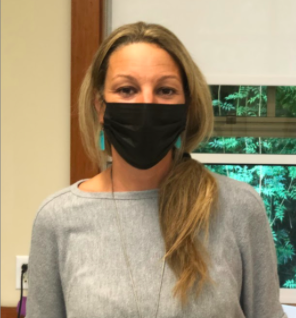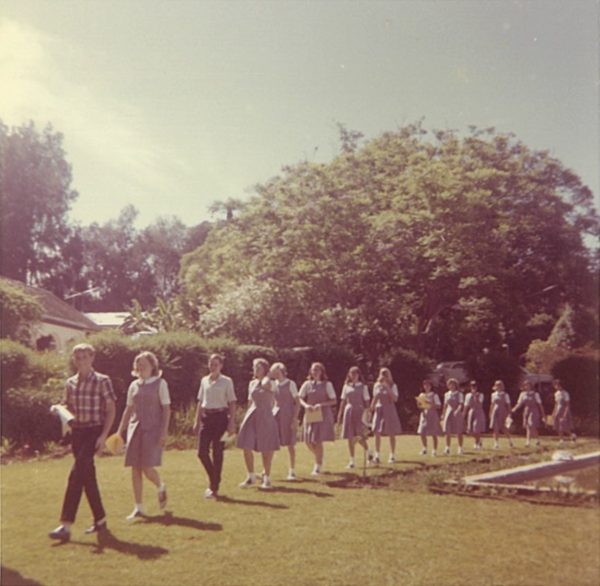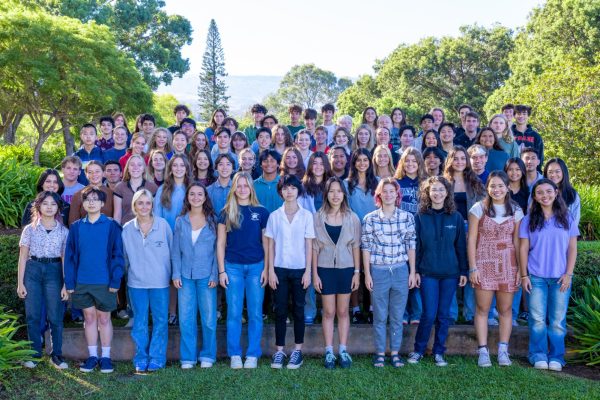Spartan Study Skills: How to Better Prepare for Exams, with Ms. Joshua
Let’s face it. Studying for tests can be difficult. In most study halls, you will spend more time staring at a wall then at your paper. Even at home, you may be spending double the amount of time studying than necessary. To help with this dilemma, Ms. Joshua, a member of the Seabury Hall faculty and Math Department, is here to help!
Q: What subject(s) do you teach?
A: In the upper school, I teach Pre AP Geometry, AP Calculus AB, and AP Calculus BC. For those of you who don’t know the difference between AB and BC, AB is the equivalent of Calculus 1 in college, while BC covers 1 & 2.
Q: What after-school help activities are available to students? Many new students are unsure of where to turn towards for personalized help.
A: Every teacher should be available from 3:00 – 3:30 from Mondays to Thursdays. Some teachers are also available before or after school. On Fridays, most teachers leave for the weekend strictly at 3:00, so make sure to plan ahead. There is also the Writing Center available for mostly English help after school on Mondays and Thursdays from 3:30 to 6:00 in the Castle Library.. Also, the National Honors Society started their own after school program, I believe it is every Tuesday and Thursday at regular times. Math teachers and peer tutors will be available to help, including Mr. Wilson, Mr. Wes, Ms. Young, and myself.
Q: In what ways can you contact and get in touch with teachers? What would be a polite way of arranging a meeting with them?
A: I know that I check my emails regularly, and popping in after class ends is a great way of talking to them [your teachers] or arranging a time to talk to them. Otherwise, emails are the best lines of communication. I know that after school, teachers enjoy their personal time, so be mindful at the time in which you send your email. If you send it late at night, there’s a high likelihood that they wont respond until it’s too late.
Q: For yourself personally, do you have a study method you prefer?
A: For me, I like to write things down, so what I’ll do is that I’ll go through my notes, and I’ll rewrite important information down. Like for math, I wouldn’t exactly write down the sample questions, but I would go through and rewrite formulas and definitions. This is my preferred way of studying. Watching myself write something down helps me to remember it when I need to recall it. You can also do sample questions. Not only doing sample and practice problems, but also making my own study guide. Making your own study guide can help you understand the process better. This would also work for classes such as a Science or Language class.
Q: What practices would you recommend for increasing productivity? Should students take breaks while studying? Or stay focused on the task at hand?
A: It depends on how long you’re studying for, but in college, I would go to the gym to study and I would do low intensity exercises, like biking. I found that to avoid being tired, I ended up focusing on what I was studying. It helped me hit two birds with one stone. Also, sitting in an uncomfortable place like at a table or desk instead of a lounging position helps. On a bed or couch, you’re more likely to fall asleep or focus elsewhere. You should also take breaks but space them out over a reasonable amount of time.
Q: Do your methods of studying only apply to your subject, or can it be utilized elsewhere?
A: Most of the things I already suggested work across subjects, especially those practices and study guides. Study guides typically work for most classes with memorization, maybe less so for an English class. For English, I would recommend practicing reading and writing about similar topics or prompts to prepare, which would be different from a Math class. As for the study guides, I wouldn’t depend solely on the study guides issued by teachers. Physically making your own study guides helps you learn the material better, and the study guide can also be lent to a friend for their own studying, so it has a dual purpose in a way.
Q: How long in advance should a student start studying?
A: It really comes down to the type of summative you’re studying for. If it’s a smaller summative or quiz, 2 days ahead of time is plenty. Quizzes tend to cover lesser topics as part of the bigger test, so studying for them will even help with bigger summatives for the unit. For tests, 3 or 4 days would be best. For finals, give yourself around a week or so. You don’t need to spend all waking hours studying, but sectioning off portions of the test to review in smaller chunks will help you remember it more. I would suggest creating study guides the first and second nights, and pouring over it on subsequent days. Basically, the more topics you need to cover, the longer the period you should space it out in. The extra nights provide you with ample time to figure things out with teachers and peers that you don’t understand. A bad practice I see often is students cramming all their studying into a single night, especially the day before the summative. I would highly recommend against it, as it will jumble up information in your head. It is not an effective way to study under any circumstances.
Q: In what ways can a student stay organized?
A: Seabury Hall doesn’t give out official planners anymore, but I still think it’s important to use one, whether an online planner or a paper and pencil one. Blackbaud also works great, as you can link it up to your schedule to see what assignments are due when in a nice format. Looking at the assignments normally is nice, but it can be daunting and intimidating to look at. You’ll reduce your stress if you’re checking off the boxes as you complete the assignments.
Q: Do you have any final thoughts on the subjects listed above?
A: The key to being successful in school, and even later in life, is time management. Being able to manage your time will help yourself be significantly less stressed out when accomplishing the tasks on hand. Even as a teacher now, I still follow all the practices I’ve discussed. I still manage my time and use a planner to carefully mark deadlines. I think that going against waiting until the last minute will help people be less stressed and happier overall.
And there you have it! The more you read, the more you know; especially from Ms. Joshua! For everyone reading, you might want to try incorporating these methods into your own studies. Happy studying, Spartans!





